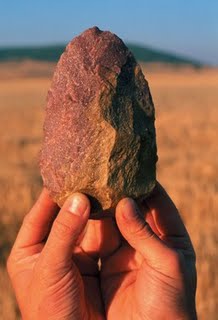
Also
in Ibercampus (July 16, 2021)
A response to the question at the Centre for Narrative Research's Blog, "Do Objects Tell Stories?":
There
are of course different kinds of stories, different levels of
explicitness in storytelling, and different ways of telling. And
different ways of using objects to tell stories to one another. A tape
recorder is an object, and it may literally speak and tell me a story,
but I will only make sense of it if I know the language. Books
are speaking objects, but only through the common "agreement" that the
written marks mean something.
Similarly, there are shared and partially shared meanings in nonlinguistic objects, and we speak of objects telling stories when we can share a story through the examination of an object, by making it tell its tale through us. Its history. What we read is a story of time: since we live in a world unfolding in time, we can discern narratives about the past (fragmentary or more articulate) practically anywhere.
The world as such is a grand narrative, the narrative of how objects came to be made, the narrative of human societies and their globalization, of how we evolved to get to where we are now (on this website) and the narrative of how it is that there came to be anything at all, from the beginning. Everyone, and everything, is a small chapter of this story.
What is
more, we all know about this narrativity of all things in an intuitive
way—and what we do all the time is to bring
it out into the open, and tease out the stories which are lurking
everywhere around us.